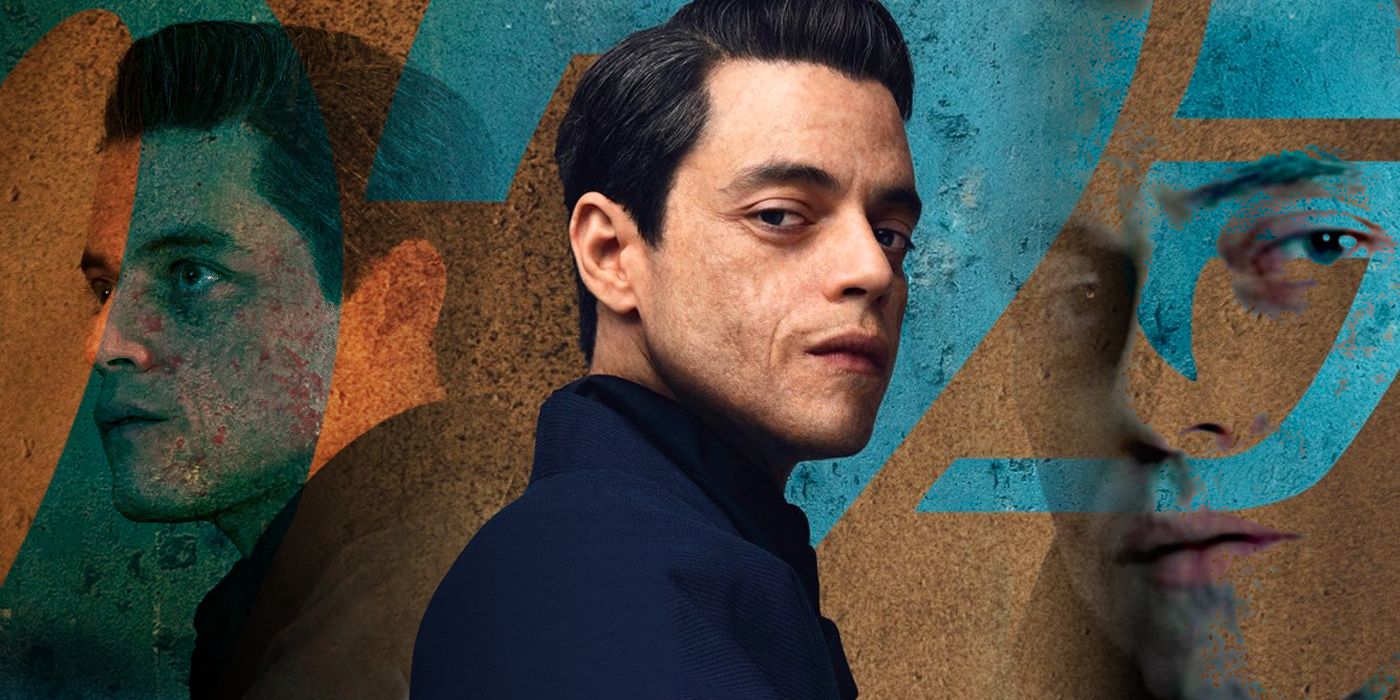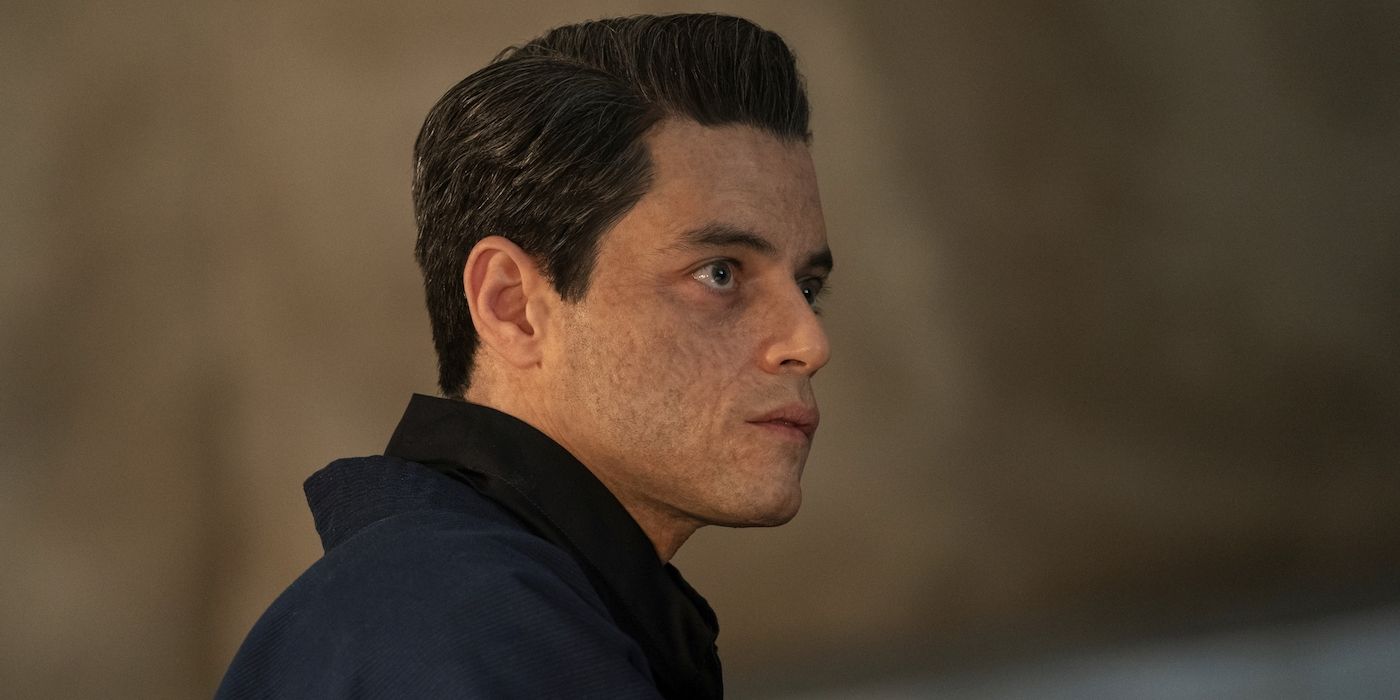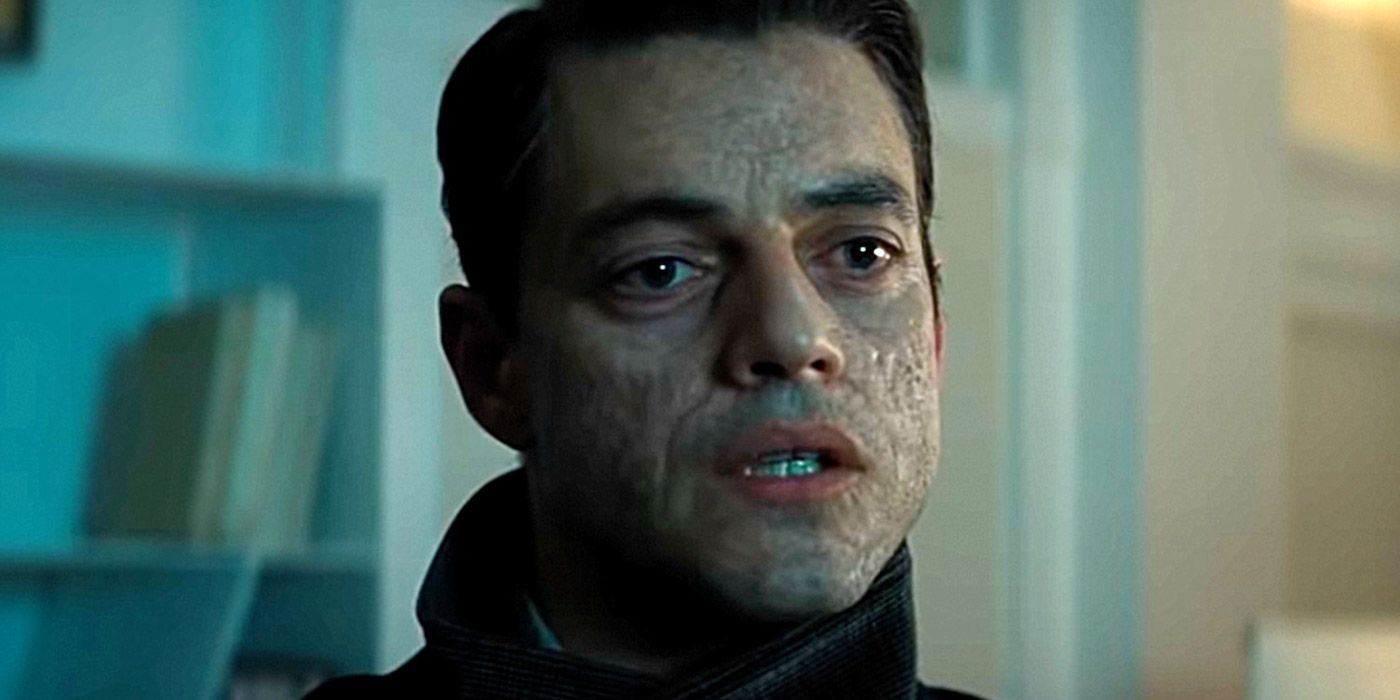The villain has the hero on the metaphorical ropes. The hero tries to maintain an aura of confidence, of, "I have a plan." Then the villain twists the hero's efforts against them, revealing the sharper, more ironic truth of what they intend to do.
This type of gripping movie scene has many iconic permutations throughout the long-running James Bond franchise, from Goldfinger's "No, Mr. Bond, I expect you to die," to Casino Royale's, um, ball torture. The Daniel Craig Bond movies, like every other facet of them, feature versions of this time-honored trope grounded, stripped down, and deconstructed into a more potent brand of blockbuster neo-realism (i.e. ball torture).
In No Time to Die, now available to stream, Craig's final hurrah as Bond, this trope gets many final hurrahs. Many of them are played seethingly safe, the content of the film's ironically villainous speeches largely feeling similar to others of its ilk, the grounding and deconstruction coming primarily from Rami Malek's minimalistic, quiet performance style. But in one shining, bizarre, and laugh-out-loud hilarious moment, this trope is dismantled to the point of destruction. It's a weird, thrillingly chaotic sendoff from a sub-franchise devoted to being weirder and more chaotic than the films before.
And it all comes from one small child.
Mathilde (Lisa-Dorah Sonnet) is Madeleine's (Léa Seydoux) daughter. This is news to Madeleine's on-again-off-again tortured love interest Bond (Craig), and while she initially denies the idea that Bond is the father, that truth becomes pretty apparent pretty quickly. So for villain Lyutsifer Safin (Malek) to really get under Bond's skin emotionally, before he does literally with those targeted nanobot missiles, he kidnaps Mathilde and Madeleine on his secluded, evil island (he's also motivated by revenge, as Madeleine's father killed his entire family). Bond invades the island and is briefly impeded by Safin and his men, during which Safin reveals the extent of his evil plan, dangles Mathilde in front of him, and leaves the room scarily, taking Mathilde with him. What kind of evil doings will he undergo next? And how will this poor, pitiable child survive?!
Um, like, very well. When Safin walks Mathilde down a hallway to his next location of biological terrors, Mathilde, understandably, stops walking, turning, and looking around for Bond or Madeleine. Safin gives the young child an eerie promise of protection — so long as she stays by his side.
This feels like a typical scene of a villain and a hero's child, one I've seen in films as recent as Space Jam: A New Legacy. I feel like what would happen next, typically, is the child continuing to follow the villain, having been sufficiently threatened/tempted by the villain's implicit threat of force. Instead, Mathilde simply turns around and walks away. And Safin simply lets her! In fact, some of his goons start to follow her, and he instructs them to let her go! He goes one way, she goes the other, and in one of the very next scenes she is rescued by Bond because the villain let her go for seemingly no reason without a single protest!
This is, to me, so unbelievably funny, but I doubt it was supposed to be. No Time to Die is, welcomely, full of intentional moments of comedy, from the silly chaos of Ana de Armas to the professional rivalry of Lashana Lynch to the line "I think it blew his mind" after Bond literally blows up someone's mind. As a performer, Malek seems intensely committed to expressing himself with as much haunted seriousness as humanly possible, and the role follows suit. Other actors who've played villains in the Craig Bond films, including Mads Mikkelsen, Javier Bardem, and Christoph Waltz, still allow their natural movie star charisma to radiate off the screen with a sense of play; a certain kind of "joy" in being performatively evil for such a franchise of honor (this point is underlined when Waltz actually reprises his role here in No Time to Die). But Malek feels determined to reject such showmanship, more content to contort himself further in, playing every beat with a muted, self-serious disassociation.
As for his character, issues of parenting, lineage, and the legacy of hate permeate Safin's every move. He blames Madeleine for the death of his family, even though she is not her father. In fact, he seems to be acting more like Madeleine's father (a cold, calculated contract killer; wonder why she's attracted to Bond so much) than her, suggesting a kind of inter-family transference of inherited sin. For Safin to witness, and at least initially capture another evidence of hate flowing from the father to the child is heavy, gloomy stuff for a four-quadrant spy flick to reckon with, and Malek seems more than willing to dive headfirst into the muck. That is, until he just lets the muck get cleaned up. What on earth is this moment?!
I'll give Malek this: When Mathilde walks away, rebuffing Safin's threatened offer (and an entire trope of action-adventure storytelling), Malek does not play the moment of rejection with any villainous typicality. Instead of exploding with rage, I'd say Malek feels "irritated," or even "itchy." Safin walks away like he just had an awkward encounter at a coffee shop and needs to shake it off, not like his entire plan is about to blow up because he let Baby Bond escape. This choice does feel intentional and does feel like an idea of comedy through the upending of performance expectations might have purposefully filtered through.
Perhaps in some way, Mathilde simply walking away is the keenest, most metatextual evidence that she is James Bond's child, at least as Bond is defined in the Daniel Craig universe. Unlike any other actor's take on the character, Craig's run was denoted by continuity, by cuts in one movie scabbing into sequel scars, by a multi-film series having an arc with a beginning, middle, and end. In other words, Craig took this opportunity to walk away definitively where his predecessors kept a traditional ambiguity hanging. Why shouldn't the literal offspring of Craig's Bond do the same?
Though now that I'm thinking about it, Craig's Bond "walking away definitively" by getting utterly devastated by a torrential downpour of missiles is also very funny. Like daughter, like father.



